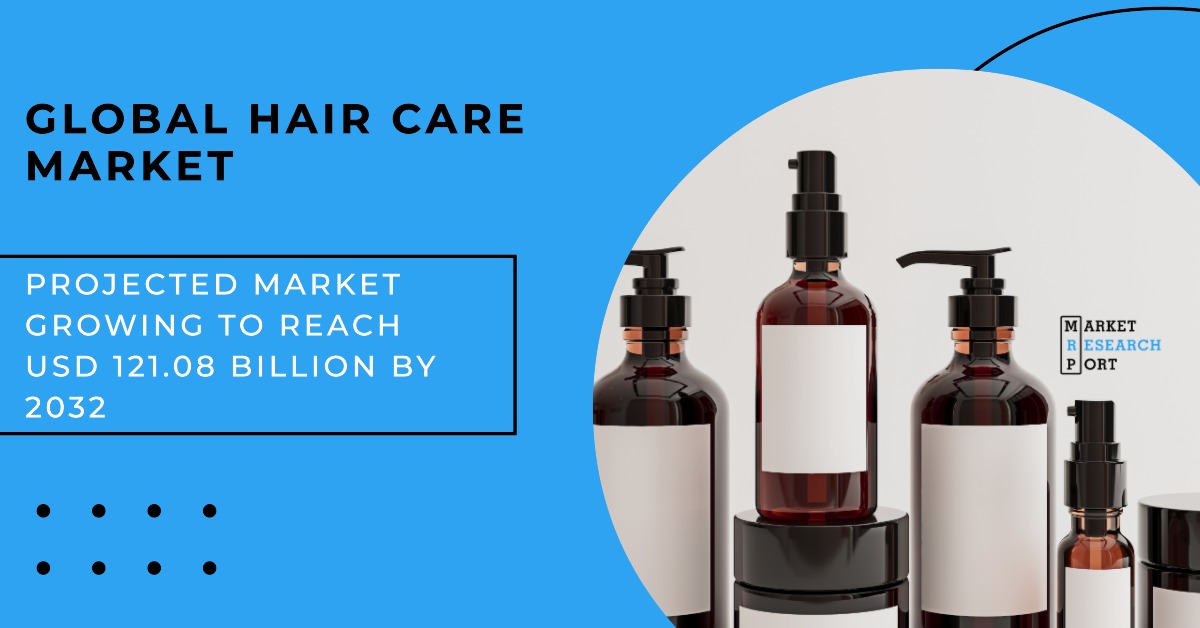
The global hair care market is entering a transformative stage driven by rising consumer awareness, evolving lifestyles, and a strong focus on personal grooming. According to recent projections, the market is expected to reach $121.08 billion by 2032, expanding at a steady CAGR of 4.1% from 2025 to 2032. This growth reflects the increasing demand for effective, clean, and technologically advanced hair care solutions across both developed and developing regions.
From premium salon-grade formulations to natural and organic products, the diversity of offerings in the hair care industry is expanding rapidly. As consumers become more informed about ingredients, product efficacy, and scalp health, brands are pushed toward greater innovation, transparency, and sustainability.
The hair care market includes a wide spectrum of products—shampoos, conditioners, oils, serums, colorants, styling items, and scalp treatments. A surge in hair and scalp concerns such as hair fall, dandruff, dryness, and pollution-induced damage has fueled demand for specialized products. At the same time, the trend toward gentle, chemical-free, and plant-based formulations is reshaping the product landscape.
Growing social media influence, increased spending on beauty and grooming, and the rise of professional hair treatments have all contributed to the market’s upward trajectory.
Both men and women are prioritizing hair care as part of their daily self-care routines. Urbanization, exposure to beauty trends, and rising disposable incomes have increased demand for premium, high-quality hair care products.
The shift toward natural formulations has intensified. Products made with herbal extracts, cold-pressed oils, and chemical-free ingredients are witnessing strong adoption globally.
Factors like stress, pollution, hard water, and lifestyle changes have contributed to rising hair and scalp concerns. This has led to growth in therapeutic products such as scalp serums, anti-hair-fall treatments, damage repair solutions, and dermatologically approved formulas.
Online platforms offer convenience, wider product choices, and access to global brands. Influencers, beauty bloggers, and user-generated reviews heavily impact purchase decisions in the hair care category.
High-end salon treatments, luxury oils, deep nourishing masks, and scientifically backed repair products are becoming popular as consumers seek long-term, visible results.
High adoption of premium and professional hair care products. Consumers invest heavily in innovative treatments and salon services.
Growing preference for eco-friendly, clean-label, and sustainable hair care solutions. Scalp-focused products are gaining attention.
The fastest-growing region with increasing demand for herbal, natural, and affordable hair care products. Rising urban populations contribute significantly to the market.
Climate-specific hair concerns and growing grooming awareness fuel the demand for moisturizing and damage-repair products.
Rapid expansion of the beauty retail sector and strong interest in hair coloring and styling products boost the regional market.
The future of the hair care market will be shaped by:
Brands that embrace innovation, transparency, and consumer-centric product development will dominate the next growth cycle of the global hair care market.
With the global market projected to reach $121.08 billion by 2032, hair care is moving into an era defined by premium quality, ingredient safety, personalization, and performance-driven solutions. As consumer expectations evolve, companies must continue to innovate, diversify their product lines, and enhance customer experience across both retail and digital channels.
The market is expected to reach $121.08 billion by 2032, growing at a CAGR of 4.1% from 2025 to 2032.
Key factors include rising grooming awareness, natural product adoption, increasing scalp health issues, and growth of e-commerce channels.
Hair serums, scalp treatments, natural oils, and premium repair therapies are experiencing rapid growth.
Asia-Pacific is the fastest-growing region due to its large population and strong demand for herbal and affordable hair care solutions.
Consumers are shifting toward chemical-free, sustainable, personalized, and high-performance products.